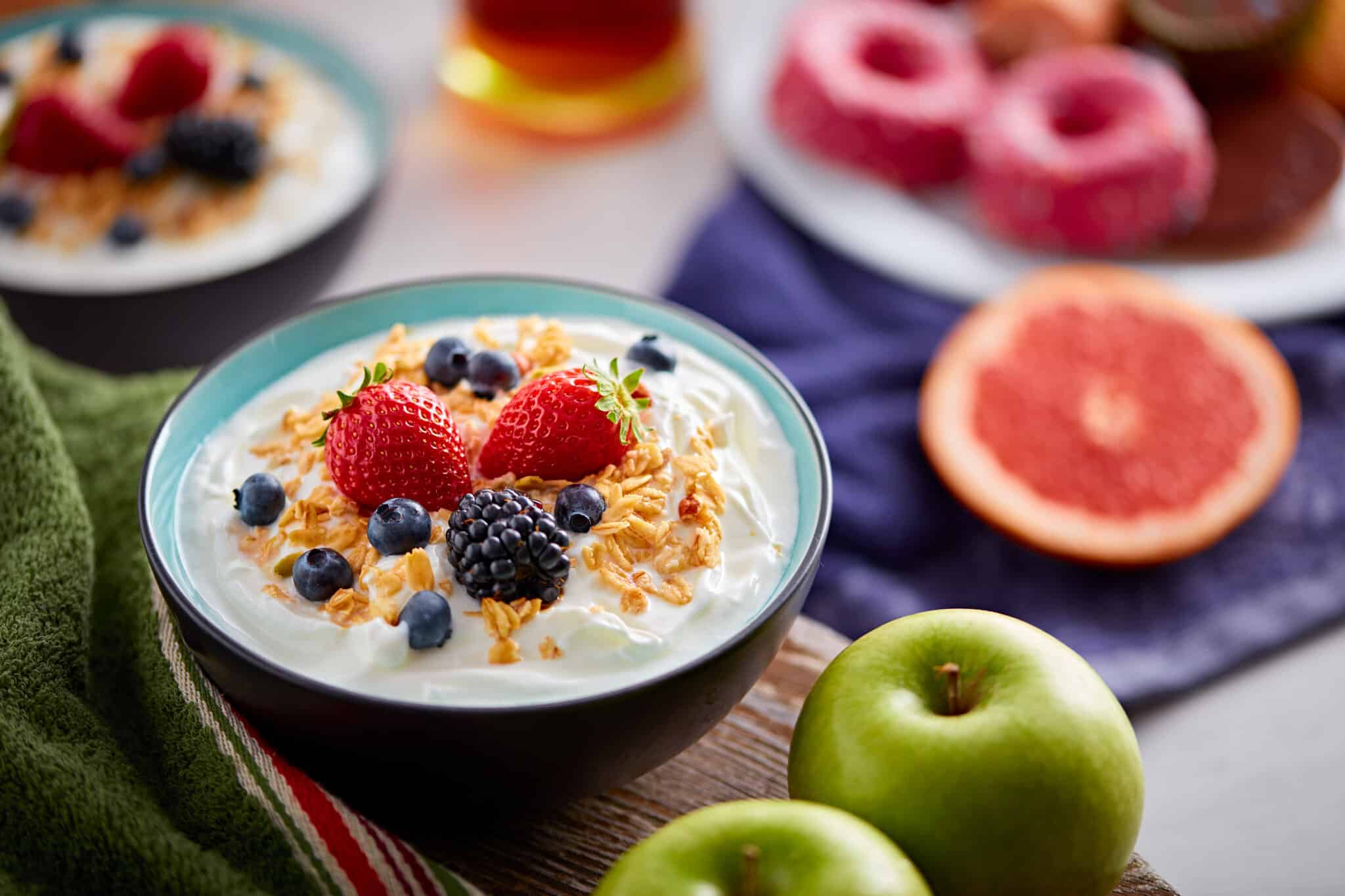
The Sweet Truth: Is Fruit Sugar Bad for You and Your Insulin?
Ditch the kale smoothies and acai bowls for a moment because we’re diving into something just as delicious and much more debated: Is fruit sugar bad for you? In our sunshine-soaked San Diego, where health and wellness are practically part of the air we breathe, peeling back the layers on this sweet topic is vital. So, is fruit sugar the villain everyone makes it out to be? Hold on, grab your surfboard (metaphorically speaking), and let’s dive in!
The Nature of Fruit Sugar
First things first: When we say “fruit sugar,” we’re talking about fructose, the natural sweetener packed in your favorite fruits. But unlike refined sugar hidden in candy, this sugar comes packed with vitamins, minerals, and fiber – basically the nutritional dream team. But the question remains: is fruit sugar bad for you? Does this make fruit a friend or foe to our insulin levels? Let’s find out.
The Insulin Story
Insulin plays a crucial role in how our bodies manage sugar. Imagine your insulin as an orchestra conductor, ensuring sugar (glucose) gracefully enters your cells. Now, what happens when you throw in a metal rock concert in the middle of a classical performance? Chaos, right? That’s precisely what happens when you consume food high in refined sugar.
So, is fruit sugar bad for you in the context of insulin response? Well, fruit sugar is different. The fiber it comes with acts like a dimmer switch, slowing sugar absorption and preventing those wild blood sugar spikes. So, in the insulin game, fruit wins major points for keeping the music flowing smoothly.
Fruit vs. Processed Sugars
While fruit offers the perfect fiber, vitamins, and minerals packed alongside its sugar, processed foods often deliver sugar with little nutritional value, leading to quicker blood sugar spikes. Think about a juicy orange versus a candy bar – both might have similar sugar content, but the orange is miles ahead regarding overall health benefits.
Addressing Fruit Juice
Fruit juice may seem like a healthy choice, but it often lacks the fiber found in whole fruits, leading to faster sugar spikes. Opt for whole fruits to reap the full nutritional rewards. Craving juice? Look for 100% fruit options and consider diluting them with water.
Listening to Your Body
Some may be more sensitive than others, and conditions like diabetes require extra attention to all types of sugars. The key is balance and listening to your body’s cues. Enjoy fruit in moderation and as part of a balanced diet.
The San Diego Perspective
Under our glorious San Diego sun, staying energized with good eats is practically a way of life. From shredding waves at La Jolla to conquering trails in Torrey Pines, we need our body strength!
For us San Diegans, incorporating fruits into our diet is not just about enjoying nature’s candy – it’s about fueling our adventures with the right kind of energy.
Local Fruit Recommendations
San Diego blesses us with various locally grown fruits. Seasonal fruits like strawberries, citrus, and avocados support local farmers and get you the freshest, healthiest fruit. Check out your local farmers’ markets in Little Italy or Hillcrest for the best seasonal produce. Here’s a quick seasonal guide:
- Spring: Indulge in juicy apricots and sweet Carlsbad strawberries, perfect for salads or healthy snacks.
- Summer: Taste the sweet flavors of local peaches, nectarines, and melons. These summer stars are ideal for grilling or hydrating on a sunny beach day.
- Fall: Julian apples and tangy pomegranates herald the arrival of autumn. Enjoy these as a crisp snack or in festive dishes.
- Winter: Citrus fruits like oranges, tangerines, and grapefruit brighten up the colder months, boosting your vitamin C intake.
Clever Ways to Enjoy Fruits in Your Diet
Forget bland salads and boring lunches! Let’s talk about something more exciting: adding fruit’s bright flavor and health benefits to your daily diet! It’s not just that splash of color on your plate – it’s a delicious step towards a healthier, happier you. Ready to unlock the juicy secrets of balanced fruit enjoyment? Dive into these savvy tips:
Pair with Protein or Healthy Fats
Pair fruit with protein or healthy fats like nut butter or Greek yogurt. This active duo helps balance your blood sugar levels and keeps you satisfied for longer. Imagine the delightful dance of apple slices with almond butter or a cup of berries swirling in creamy Greek yogurt – a delicious way to fuel your day!
Mind Your Portions
Remember, even healthy foods need mindful portions. Think of a small apple or a cup of berries as your perfect serving size, especially if you monitor sugar intake.
Choose Whole Fruits Over Juice
Skip the sugary juice boxes! Whole fruits offer fiber benefits and less sugar per bite. Opt for a crunchy apple bursting with flavor or a juicy orange packed with vitamin C. Craving that liquid sunshine? Look for 100% fruit options; remember, even fruit juice diluted with water is better.
Incorporate Fruits in Meals
Think creatively! Add sliced strawberries to your salad for a sweet and refreshing twist, or top your morning oatmeal with a handful of blueberries for a burst of flavor and antioxidants. These small additions elevate both taste and nutrition in your meals.
Be Creative
Freeze grapes for icy summer treats, grill pineapple slices for a unique BBQ dessert, or blend various fruits into smoothies for a refreshing pick-me-up. Experimenting with fruits makes healthy eating fun and exciting, just like discovering hidden gems in our beautiful San Diego!
Fruit Intake for Diabetics: A Quick Guide
Managing fruit intake as a person with diabetes can feel tricky, but it’s definitely doable! Here’s a simplified guide to navigating the delicious world of fruit while keeping your blood sugar happy:
Carb Counting
Aim for around 15 grams of carbohydrates per fruit serving. This could be one small apple, ½ cup of fresh berries, or ¼ cup of dried fruit. Remember, these are just starting points. Adjust based on your specific needs and doctor’s recommendations.
Portion Patrol
Smaller portions = steadier blood sugar. Think of a small piece of fruit or a measured cup of berries as your sweet spot.
GI Know-How
Choose fruits with a lower Glycemic Index (GI), like berries, apples, and pears. These beauties cause gentler blood sugar rises compared to their higher-GI counterparts.
Personalized Sweetness
Every body is unique, so chat with your healthcare provider to tailor your fruit intake to your specific health goals and needs. They can help you find the perfect balance!
Listen to Your Body
Regularly monitor how different fruits affect your blood sugar. This valuable information helps you adjust your diet and make informed choices for your unique body.
*Bonus Tip: Experiment with spices like cinnamon! Studies suggest it can help improve insulin sensitivity and regulate blood sugar. Sprinkle some on your fruit or add it to smoothies for an extra healthy boost.
This guide is just a starting point. By working with your doctor and learning how your body responds to different fruits, you can enjoy their deliciousness while keeping your blood sugar in check!
Best Fruits for Diabetics
Managing fruit intake is crucial for people with diabetes, but don’t despair! Here are some low glycemic index (GI) fruits to keep your taste buds and blood sugar happy:
- Berries: Strawberries, blueberries, raspberries, and blackberries are delicious and have a low GI.
- Cherries: Sweet cherries can satisfy sweet cravings and also have a low GI score.
- Peaches: A juicy, summery option with a low GI score.
- Apples: The fiber in their skin helps slow sugar absorption, making them a great choice.
- Pears: Pears offer fiber and a low GI, especially when eaten with their skin.
Remember, moderation is key! Even though fruits like pineapples, mangoes, and bananas are high in sugar, you can still enjoy them as part of a balanced diet. Managing blood sugar is all about mindful choices, balancing things out, and consulting your doctor.
The Verdict
So, is fruit sugar bad for you? When managed moderately, it can be part of a healthy lifestyle. It’s about balance, informed choices, and celebrating natural flavor. By following these tips, you can embrace the taste of fruit while nourishing your body and thriving in our health-conscious community.
Stay sweet, stay healthy, and enjoy what San Diego offers! Schedule a call with our experienced physicians and tap into our wealth of resources to take the first step towards a personalized and empowering health journey.

Join our Senior Wellness Society for the latest news on Medicare and tips for healthy living in San Diego!
Sign up now ›Are you looking for specialized medical care in San Diego?
Our directory has more than 850 doctors in San Diego County of various specialties who are available to help you.
Find a doctor